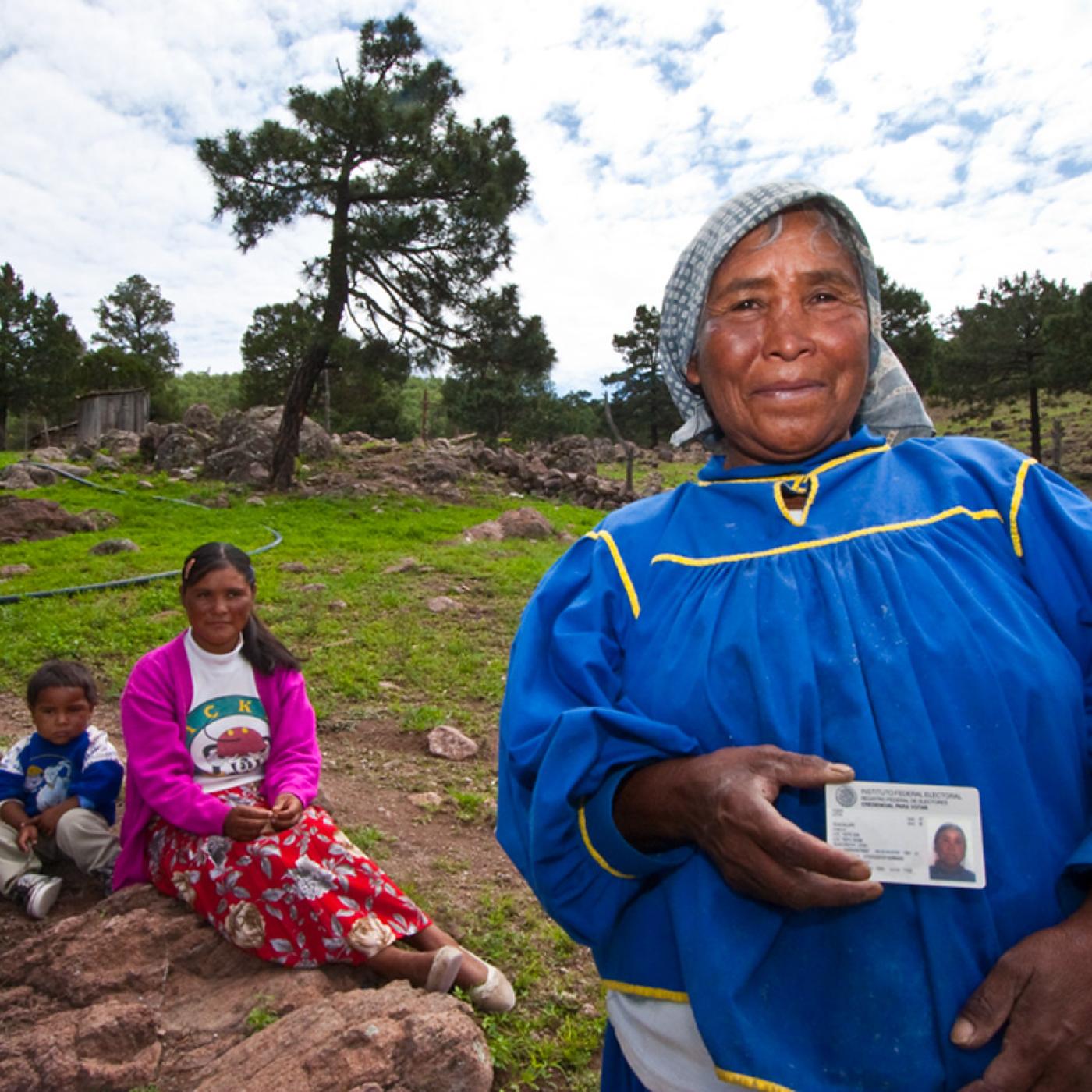Violence Against Women in Elections

The International Foundation for Electoral Systems
The International Foundation for Electoral Systems (IFES) believes that violence against women in elections (VAWE) is a threat to the integrity of the electoral process and to the quality of democracy because it coercively excludes women from having a voice in the political life and governance of their country. VAWE is a violation of political and human rights and frequently also a criminal or civil code violation that harms voters, candidates, election officials, activists and security and political professionals worldwide, occurring both online and offline.
IFES works to eradicate VAWE through a tool suite of cutting-edge research products, legal strategies and digital initiatives.
Ending Impunity for VAWE
Deeply destructive and globally pervasive, violence against women in elections (VAWE) is largely met with impunity wherever it occurs. According to former United Nations (UN) Secretary General Ban Ki-moon, “Impunity for violence against women compounds the effects of such violence as a mechanism of control. When the State fails to hold perpetrators accountable, impunity not only intensifies the subordination and powerlessness of the targets of violence, but also sends a message to society that male violence against women is both acceptable and inevitable.”
IFES has found that few VAWE offenders are held to account, despite laws on the books and multiple punitive mechanisms that might exist across different institutions. There is often a double-standard for electoral violence cases involving women’s political participation, relegating them to second-class citizen status. Impunity can make such offenses viable tactics both in campaigning and in post-election agitation. For the sake of public confidence in rule of law and a meaningful path to political gender equality, it is imperative that offenses do not go unpunished. The issue of impunity for VAWE is particularly acute as women already face greater barriers to participation in public life and experience highly distinct forms of violence – especially forms that are often overlooked or hidden, including sexual assault, intimidation and threats. Overcoming VAWE and ensuring perpetrators do no go unpunished is not just an issue of individual rights, but one of broader electoral justice and electoral integrity. IFES’ VAWE Legal approach helps ensure justice and facilitate change of institutional and societal attitudes, beliefs and behaviors on VAWE through targeted legal analysis, aid and advocacy.
Engaging Digital Initiatives to End VAWE Facilitated by Information and Communication Technologies (ICT)
A report released by the UN Broadband Commission called violence against women online a "problem of pandemic proportion." The report found that 73 percent of women online have been exposed to or experienced some type of cyberviolence. Among the 86 countries included in the survey for the report, only 26 percent of law enforcement agencies have taken action against such violence.
In the case of electoral processes, women voters, candidates, activists, elected representatives, and electoral management officials have faced online harassment, threats and other abusing and degrading behaviors. VAWE online is an especially damaging violation of internet freedom, because it is intended to silence women’s voices and prevent them from exercising their civic and political rights.
Recognizing the existence of an ecosystem of ICT-facilitated violence against women online, IFES engages multiple targeted tools to stop VAWE online in its tracks, including a VAWE Online sentiment analysis tool and a partnership with Hollaback!'s HeartMob project.
Documenting VAWE
Documenting VAWE is essential to understanding the prevalence of this debilitating problem and to identifying appropriate responses for mitigation and prevention. VAWE is challenging to reliably document because of how it occurs (including non-physical threats and sexual violence), where it occurs (including on social media and in domestic spaces) and why it occurs (sometimes due to misogyny and other times "regular" politically-motivated election violence that occurs in gender-specific ways and with gender-specific impacts).
IFES believes that no single data collection approach can fully capture the phenomenon. Instead, we offer a comprehensive suite of tools dedicated to dependably and consistently documenting VAWE. Our threefold approach reflects the importance of combining qualitative and quantitative research approaches alongside technology-based data collection and analysis in this specific field. It is united by a single definition and typology of VAWE.
VAWE Framework: Through analysis and program implementation focused on increasing women’s participation and leadership in democracy assistance, the VAWE Framework makes narratives of violence against women in elections, homes, political arenas and public spaces more visible. The framework includes a typology of electoral violence, an assessment methodology, a monitoring methodology, and program recommendations. As part of IFES’ overall human-centered approach to electoral security, this framework allows for a more holistic approach to security that takes into account gender considerations and covers all phases and activities of the electoral process.
Recording VAWE Online: The IFES-led VAWE Online sentiment analysis tool captures direct threats and abusive and violent rhetoric surrounding women’s political participation. It analyses big data content from social media as well as the intensity, volume and speed of violent cyber-discourse to halt hateful commentary in its tracks and enhance the digital security of women in elections. Deployed in multiple contexts around the world, including Ukraine, Sri Lanka, Afghanistan, Zimbabwe and the United States, IFES’ tool is adaptable to contexts worldwide.
Monitoring Electoral Violence: Accurate information about electoral violence, such as that collected using IFES’ Electoral Violence Education and Resolution (EVER) methodology, supports immediate responses and build an understanding of patterns and trends to consider during the development of immediate and long-term prevention and mitigation strategies. Since 2003, IFES’ EVER program has trained community-based monitors worldwide to collect verified, incident-based data at a grassroots level through elections affected by violence. IFES analyzes gender-disaggregated EVER data to identify gendered trends and patterns in the types, forms, targets and perpetrators of election violence. All EVER programs today included adapted modules on VAWE to help monitors understand what and where to look for it, how to use sensitive monitoring skills to document gender-based violence and how male and female monitors can conduct their work securely.



